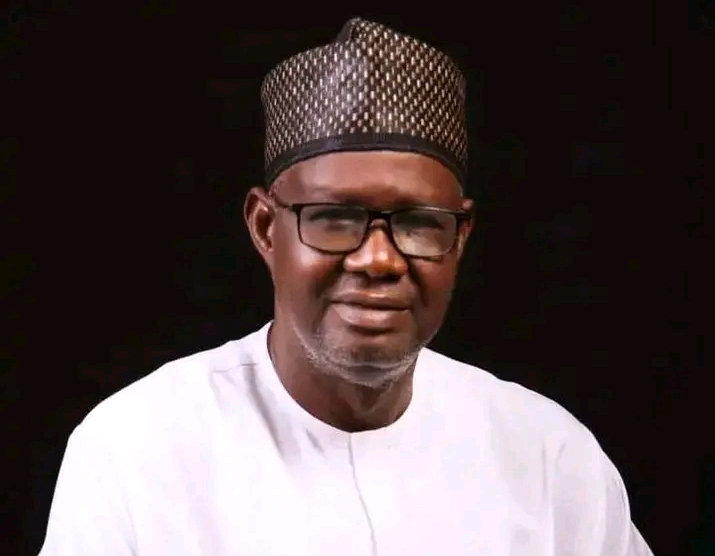The clamor for the creation of new states in Nigeria has resurfaced, with proponents arguing that the nation’s economic strength and administrative imbalances justify the move. Auwalu Gwalabe, a member of the House of Representatives, highlights the apparent contradiction between the government’s willingness to invest heavily in infrastructure projects like the proposed N17 trillion Lagos-Calabar road and its reluctance to create new states. He contends that the resources allocated to such mega-projects could be utilized to establish several new states, addressing pressing needs for improved local governance and more equitable distribution of resources. Gwalabe emphasizes that the country’s economic potential is robust enough to accommodate additional states, proposing an increase of 12 states, particularly in regions grappling with high population density and administrative disparities. He uses the example of the uneven distribution of local governments among states, where some senators represent a significantly larger number of local governments than others, creating an imbalance in representation and development focus.
Gwalabe’s advocacy for the creation of Katagum State from Bauchi State underscores the long-standing desire for greater autonomy and localized development in certain regions. He attributes the decades-long delay in the realization of such aspirations to constitutional bottlenecks and a perceived lack of political will from the executive branch. He draws a stark contrast between the current democratic process of state creation, which requires constitutional amendments, and the more straightforward approach employed by past military regimes, where decrees were sufficient to establish new states. Gwalabe suggests a simple alteration to the constitution, adding the proposed new states to the existing list, as a pragmatic solution. He believes that such a move would not only streamline the process but also reflect the will of the people in those regions seeking greater autonomy.
The public hearing on the review of the 1999 Constitution provided a platform for stakeholders to voice their opinions and contribute to the ongoing debate. Benjamin Kalu, the Deputy Speaker of the House and Chairman of the constitution review committee, reassured participants that their inputs would be carefully considered and accurately reported to the House. This commitment to incorporating public sentiment into the review process is crucial for ensuring that the revised constitution reflects the evolving needs and aspirations of the Nigerian people. The review process is not merely a bureaucratic exercise but a vital component of the democratic process, allowing citizens to shape the fundamental laws that govern their lives.
Former Bauchi State Governor, Mohammed Abubakar, acting as a consultant to the review committee, acknowledged that the constitution, being a product of human endeavor, is inherently imperfect and therefore requires periodic review and amendment. He emphasized the lengthy process leading up to this point, highlighting the meticulous effort invested in compiling and organizing the proposed amendments. The bills under consideration, categorized systematically under areas like electoral reform, judicial reform, legislative reform, inclusive governance, devolution of powers, fiscal reforms, and citizenship and indigeneship reforms, demonstrate the comprehensive nature of the review process. Abubakar’s explanation offered context to the scale of the undertaking and the importance of public participation in shaping the future of Nigeria’s constitutional framework.
Among the key areas under review, electoral reforms stand out, with twelve bills addressing critical issues like the feasibility of conducting all elections on a single day, the contentious practice of political defections, and the role of the Independent National Electoral Commission (INEC) in conducting local government area elections. These proposals reflect the ongoing efforts to improve the integrity and efficiency of the electoral process, addressing issues that have plagued Nigerian elections for years. The potential impact of these reforms on the democratic landscape of Nigeria is significant, with the possibility of enhancing voter participation, reducing electoral malpractice, and strengthening the credibility of election outcomes.
Governor Muhammadu Yahaya of Gombe State, in his opening remarks, characterized the constitutional review process as a “democratic imperative,” affirming the right of citizens to participate in shaping the laws that govern them. He lauded the National Assembly for bringing the public hearing to the North-East region, emphasizing the importance of inclusivity in the review process. Yahaya underscored the need for reforms in key areas such as federalism, resource allocation, and local governance, encouraging stakeholders to offer meaningful contributions to the process. His call to action emphasized the significance of the review as a collaborative effort, with the potential to create a constitution that genuinely reflects the shared aspirations of the Nigerian people. He echoed the sentiment that the constitution is a “living document,” adaptable to the evolving needs of the nation and its citizens.


